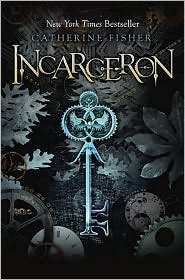
An interesting thing happened just before Christmas, however. I mentioned that Taylor Lautner was set to star in (and probably co-produce) the film version of Incarceron. My comments were actually directed at how smart I thought young Mr Lautner was for getting into production, but S had not heard of the book, whereas M and I had. (M had it squirrelled away in her room, so I've not yet managed to read it.) We gave her the basic gist of it, and S declared she was interested in reading it.
Sometime between then and now, she and I talked about the book again (briefly), and I told her that just because she'd stopped reading for fun at one point, it didn't mean that she was precluded from starting again. (I think it's important to let nonreaders know that even if they've made a point of being nonreaders, they are free to change their minds.)
This morning at 7:10, she boarded a train to D.C. to meet her father and M down there for the weekend, taking Incarceron as her travel partner. Allow me to share the text I received from her with you:
"I started Incarceron. Finally found the book that is going to get me back into reading."
Behold, the power a single book can have. Thank you, Catherine Fisher.![]()
Viewing: Blog Posts Tagged with: fisher, Most Recent at Top [Help]
Results 1 - 2 of 2
Blog: Writing and Ruminating (Login to Add to MyJacketFlap)
JacketFlap tags: books, reading, fisher, Add a tag
Blog: Writing and Ruminating (Login to Add to MyJacketFlap)
JacketFlap tags: park, yolen, nelson, vecchione, hemphill, sidman, poetry collections, grandits, fisher, worth, poetry, poetry friday, anthologies, alexander, miller, Add a tag
Yesterday, an interview with renowned fantasy writer Bruce Coville, and today, a top ten list. I really don't think I can keep this level of quality up, folks.
Until recently, I was on the nominating panel for the CYBILS poetry award, which kept me from telling you my top ten favorite poetry books of 2007. (I know I said twelve the other day, but I've edited myself down to a mere ten.) But now that the discussions are over and the finalists are in, I'm embargoed no more. Oh, and I should note before I start that I've not yet read Good Masters! Sweet Ladies!: Voices from a Medieval Village by Laura Amy Schlitz, illustrated by Robert Byrd and Tina Schart Hyman, nor did I get my hands on Twelve Rounds to Glory: The Story of Muhammad Ali by Charles R. Smith, illustrated by Bryan Collier, both of which come highly recommended by readers I tend to trust.
Here they are, in alphabetical order by title. Those that made the CYBILS top 7 have an asterisk before the title: *Animal Poems by Valerie Worth, illustrated by Steve Jenkins. I reviewed this one during National Poetry Month. I loved it then. I loved it as much or more now. The poems are gems. Written in free verse, the poems are about 23 different animals. Some of the animals Worth wrote about, like the Elephant and Jellyfish, are staples in collections of animal poems; others, like the Star-Nosed Mole are decidedly uncommon. In order to keep this post from becoming ridiculously long, I will simply repeat the link to my prior review, which includes sample poems and artwork.
*Animal Poems by Valerie Worth, illustrated by Steve Jenkins. I reviewed this one during National Poetry Month. I loved it then. I loved it as much or more now. The poems are gems. Written in free verse, the poems are about 23 different animals. Some of the animals Worth wrote about, like the Elephant and Jellyfish, are staples in collections of animal poems; others, like the Star-Nosed Mole are decidedly uncommon. In order to keep this post from becoming ridiculously long, I will simply repeat the link to my prior review, which includes sample poems and artwork.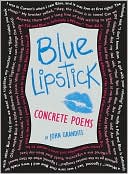
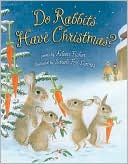
I'll make me a score
of suet balls
to tie to my spruce
when the cold dusk falls.
And I'll hear next day
from the sheltering trees
the Christmas carols
of the chickadees.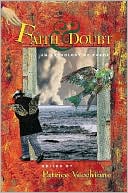
 *Here's A Little Poem: A Very First Book of Poetry, edited by Jane Yolen and Andrew Fusek Peters, illustrated by Polly Dunbar. I first reviewed this book during National Poetry Month, when I said "If you have a toddler or preschooler who needs a poetry book, this is the one to buy. It is a beautiful book in all the right ways, and it's perfect for adults to share with kids." I stand by my earlier words, including the ones about the need for adult assistance - this is a BIG book of poems for little people. One of the things I love best about this collection is the number of "new" poets in it. Yolen and Fusek have selected poems from all over the English-speaking world, and they've insisted on printing the poems exactly as they were originally written, spellings and all. So the word "favor" might be in a poem by an American author, but "favour" from a Brit (as a hypothetical illustration). The illustrations are completely darling, and this book positively screams High Quality Production! at every turn, from paper weight to typsetting to artwork to the excellent assortment of poems, all of which are well-arranged. If you take another look at my review from April, you can see some of the pages and poems to get a better sense for yourself. Or just go buy it.
*Here's A Little Poem: A Very First Book of Poetry, edited by Jane Yolen and Andrew Fusek Peters, illustrated by Polly Dunbar. I first reviewed this book during National Poetry Month, when I said "If you have a toddler or preschooler who needs a poetry book, this is the one to buy. It is a beautiful book in all the right ways, and it's perfect for adults to share with kids." I stand by my earlier words, including the ones about the need for adult assistance - this is a BIG book of poems for little people. One of the things I love best about this collection is the number of "new" poets in it. Yolen and Fusek have selected poems from all over the English-speaking world, and they've insisted on printing the poems exactly as they were originally written, spellings and all. So the word "favor" might be in a poem by an American author, but "favour" from a Brit (as a hypothetical illustration). The illustrations are completely darling, and this book positively screams High Quality Production! at every turn, from paper weight to typsetting to artwork to the excellent assortment of poems, all of which are well-arranged. If you take another look at my review from April, you can see some of the pages and poems to get a better sense for yourself. Or just go buy it.

The Cow
Because
she wears
a bristly map
of milkweed shite
and midnight black
it seems
as though
she's
strong enough
to carry continents
upon her back
with oceans
in between
and islands on her
knees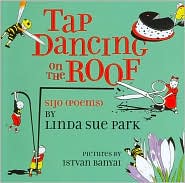
Word Watch
Jittery seems a nervous word;
snuggle curls up around itself.
Some words fit their meanings so well:
Abrupt. Airy. And my favorite——
sesquipedalian,
which means: having lots of syllables.
I've met Linda Sue a couple of times now, and in my mind, I can literally hear her voice in this poem, as if she were hear, speaking assuredly into my ear. Linda Sue, you had me at sesquipedalian.
Then there are the poems of response (and in many cases, forgiveness), that come in the second half of the book, where even the poem written on behalf of Florence P. Scribner's statue contains magic and heart. Just glancing at some of the poems now has caused my eyes to fill again, because they are so strong and warm and wonderful. They are funny and sad and true. They are, in short, miraculous. A must-buy for upper elementary and middle-school kids and teachers. Here's an excerpt for you:
From Apologies:
"How Slow-Hand Lizard Died"
I stole him.
Took him home in my pocket.
Felt the pulse beating
in his soft green neck.
Had no place good to put him.
A shoebox.
He got cold, I think.
Watched his life wink out,
his bright eye turn to mud.
Brought him back,
stiff as an old glove.
Hid him in the bottom of the cage.
Left the money on Mrs. Merz's desk.
(Stole that, too.)
Won't touch the new lizard.
Don't like to touch
money
either.
From Responses:
Ode to Slow-Hand
the way his heart beat in his throad
the way his toes whispered on our hands
los perdonamos
his skin: rough green cloth
the color of new leaves
los perdonamos
his belly: soft as an old balloon
his tongue: lightning's flicker
los perdonamos
the sad way he left us
the sad way you feel
los perdonamos
we forgive you
Crap. Now I'm crying again. While I compose myself, by all means check out Elaine Magliaro's post at Blue Rose Girls from back in March. *Your Own, Sylvia: a verse portrait of Sylvia Plath by Stephenie Hemphill. You may recall that I first raved about this book back in March when I reviewed it for my blog. And then, I repeated my enthusiastic rave in May as part of Wicked Cool Overlooked Books. I still love it for all the reasons I stated. This book is fun to discuss, by the way, because the reasons I love it — it keeps a bit of distance between the reader and Sylvia Plath and it presents a kaleidoscopic image of her by showing her through the eyes of many different acquaintances as well as by guessing at what was in her own mind (based on her journals, etc.) — are the same reasons that some other folks don't particularly care for it (they found the many attributed voices distracting and/or didn't care for the distance between the reader and the subject (or is she the object?) of the book. Highly recommended for teen readers. This one was, in fact, teen-tested here at my house, and got two thumbs up and some tears from my older daughter. An excellent book for a book report for middle school- and high school-aged kids, and an excellent supplement and research tool for anyone interested in Plath (middle school through adult), on account of the copious bibliography and source notes in the back of the book.
*Your Own, Sylvia: a verse portrait of Sylvia Plath by Stephenie Hemphill. You may recall that I first raved about this book back in March when I reviewed it for my blog. And then, I repeated my enthusiastic rave in May as part of Wicked Cool Overlooked Books. I still love it for all the reasons I stated. This book is fun to discuss, by the way, because the reasons I love it — it keeps a bit of distance between the reader and Sylvia Plath and it presents a kaleidoscopic image of her by showing her through the eyes of many different acquaintances as well as by guessing at what was in her own mind (based on her journals, etc.) — are the same reasons that some other folks don't particularly care for it (they found the many attributed voices distracting and/or didn't care for the distance between the reader and the subject (or is she the object?) of the book. Highly recommended for teen readers. This one was, in fact, teen-tested here at my house, and got two thumbs up and some tears from my older daughter. An excellent book for a book report for middle school- and high school-aged kids, and an excellent supplement and research tool for anyone interested in Plath (middle school through adult), on account of the copious bibliography and source notes in the back of the book.



